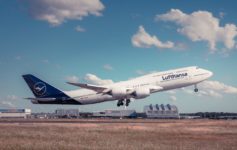In a move that took many by surprise today, Southwest (WN) announced that it would be acquiring AirTran for $1.4B, subject to DOT approval.
You can read about the details here: I’ll just briefly sum up my thoughts on the matter.
I look at this news like Gary does, with one exception. Like Gary, I have no desire to fly on Southwest or AirTran so the internal changes the airline will make will be of little consequence to me. Like Gary, I also see this move by Southwest as a sign that the Dallas-based airline has run out of ways to expand on its own, and will no longer be the same type of carrier it once was.
Southwest’s business model will still be different than legacies, but some of the differences will disappear. The heralded point-to-point route map of Southwest will now feature a prominent hub in Atlanta (though I suppose you could argue that Las Vegas, serving all but ten of Southwest’s destinations, is already a hub). Also, Southwest may become an international airline, serving the Caribbean and Mexico, though CEO Herb Kelly has cautioned that WN may not continue those AirTran international routes. AirTran also has a business class cabin, IFE, and an extensive BOB menu, all things that Southwest has deliberately shunned in the past but will be forced to reconsider now.
Here’s where I see things a little different than Gary does. Although I see consolidation as necessary and inevitable for the airline industry to ever sustain profits, I genuinely fear that the long-term consequences of this merger (and the wave of mergers hitting the airline industry) will be much higher prices for consumers. Much higher.
The cash and stock deal will allow Southwest to move into or plant a larger stake in primary travel hubs such as New York’s La Guardia and Reagan National airport near Washington, D.C. It will also give Southwest entree into Atlanta, busiest passenger airport in the world, paving the way for the low-cost carrier to go head to head with Delta on that airline’s home turf.
In the short-run, we’ll see more competitive pricing at LGA, ATL, and DCA–I look forward to it. In the long run, though, we’ll see sustained higher prices across the country because AirTran (almost 1/3 the size of WN) will no longer be competing with Southwest and the legacies. Instead of two LCCs flying into LaGuardia, Southwest will have one less competitor, likely allowing all airlines to get away with charging higher fares. Take a look at the airports that Southwest dominates: the fares are not any lower–in fact, in Oakland (for example), WN’s dominance has lead to an increase in average ticket prices.
We’ve all been spoiled by cheap fares over the last decade, but I hate to see the party come to an end. The Southwest/AirTran merger is just another sign that the party is almost over. One morning we’re going to wake up and find that $200 transcons really are an extinct relic of the past. Enjoy the competition while it lasts.




Leave a Reply